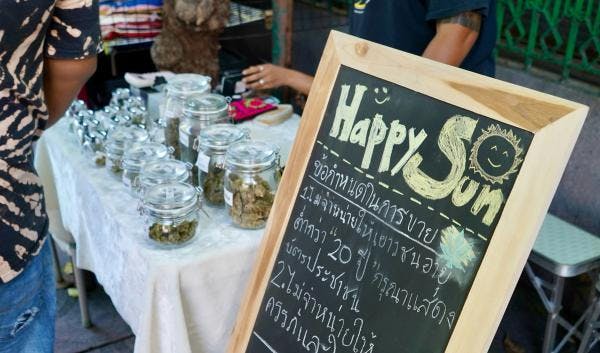ThaimaaOpas - Unsplash
Inside Thailand’s U-turn on cannabis decriminalization
A Second U-Turn
“The recent national election has seen a change in administration where the party of the prime minister had campaigned for much stricter drug policies,” says Gloria Lai, regional director of Asia for the International Drug Policy Consortium said. “The government has since announced that new laws regulating the cannabis market are expected to pass in mid-2024, which will aim to support only medical use of cannabis, with restrictions on the sale of certain cannabis products and related equipment.”
As Lai explained, this is highly likely to have an impact on the thousands of businesses that have made weed their income over the past 18 months. She has concerns that it will shut out small business owners and local farmers who have been able to make a livelihood from this. The market, she fears, will instead be left to elite or large organizations to profit.
In addition, potentially millions of Thai people, who may not be able to obtain a prescription, could either lose access or face harsh criminalization once again.
With economic factors no doubt a key factor in the initial decriminalization decision, the past year would have been the perfect opportunity for the government to study health and social outcomes of the policy, obtaining data to inform its next steps. However, Lai is unaware of any such studies being carried out.
The motives behind this re-regulation are as murky they were for the initial decriminalization, though Prime Minister Thavisin told Bloomberg in September 2023 that drug problems had been “widespread lately.”
Regions
Related Profiles
- Filter Mag
